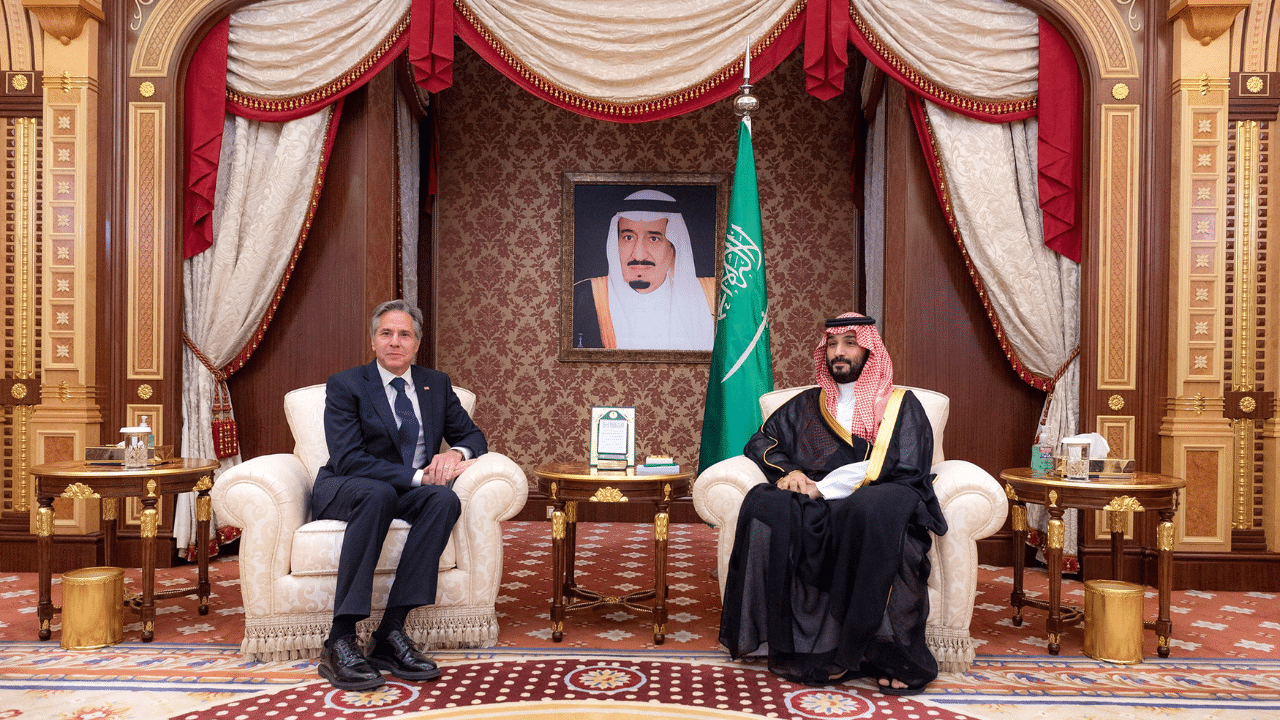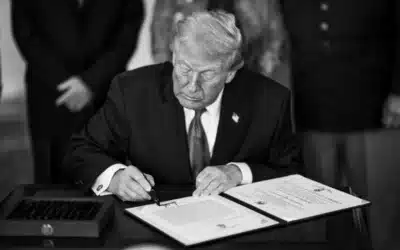Secretary of State Antony Blinken met with Saudi Crown Prince Mohammed bin Salman (MBS) for an “open and candid” conversation on Wednesday, according to a US official speaking to Reuters. The discussion covered a wide range of bilateral issues, including potential Saudi-Israeli normalization and the war in Yemen.
The top US diplomat visited Jeddah soon after the Saudis, in a bid to raise flagging oil prices, pledged to deepen output cuts on top of a broader OPEC+ agreement aiming to limit supply. The US has opposed these moves, arguing they will indirectly benefit Russia – a major energy exporter – in the midst of a US-led sanctions blitz which Riyadh has refused to join.
A significant chunk of Blinken’s meeting with MBS was supposed to focus on promoting Saudi-Israeli normalization along the lines of the Abraham Accords, but the Gulf monarchy has already made clear this is impossible without a two-state solution for occupied Palestine.
Tel Aviv and Blinken appear so eager to get a deal that Riyadh may have substantial leverage to exact concessions from Washington in the form of security guarantees and assistance in setting up a civilian nuclear energy program, both of which Saudi Arabia is reportedly seeking.
Without providing further details, the US official said they “discussed the potential for normalization of relations with Israel and agreed to continued dialogue on the issue.”
Ties between Washington and Riyadh have frayed further as the Saudis continue to stake out a more independent foreign policy. On Tuesday, MBS hosted President Nicholas Maduro of Venezuela, another country heavily sanctioned by the US. The Saudi Kingdom has also restored full diplomatic relations with long-time adversary Tehran following a recent deal brokered by Beijing, who is now striving for a larger role in the region. US officials have downplayed the breakthrough, with National Security Counsel spokesman John Kirby saying ”it really does remain to be seen whether the Iranians are going to honor their side of the deal.”
The two former rivals continue to bolster bilateral ties. Iran reopened its embassy in Riyadh the day Blinken arrived in Saudi Arabia. The US has been left “blindsided,” however, as the Joe Biden administration works to expand its “maximum pressure” sanctions campaign on Iran and build a NATO-style alliance with Tel Aviv and Arab nations to target the Islamic Republic using the Abraham Accords as a foundation.
Instead, the United Arab Emirates has withdrawn from a US-led maritime coalition and Tehran has announced that it is working to form a naval alliance with Arab states, including Riyadh and Abu Dhabi.
In another challenge to the US’ grip on the region, Saudi has also normalized with Damascus. The White House strongly opposes Arab countries welcoming Syria in from the cold after the failed US-led regime change war, as Washington still seeks to overthrow Syrian President Bashar al-Assad. Israel frequently bombs the country, while the United States illegally occupies roughly one-third of the Syrian territory and maintains crippling sanctions on the war-torn nation.
Despite American resistance, however, Syria was re-admitted to the Arab League last month, from which it had been suspended for over a decade, and Riyadh has called for all foreign forces to leave Syria.
Blinken’s subsequent remarks before a Gulf Cooperation Council ministerial meeting in Riyadh indicates the White House has not yet adjusted to these seismic regional shifts. “We are determined to find a political solution in Syria that maintains its unity and sovereignty and meets the aspirations of its people,“ the official said, though he remains an avid supporter of Biden’s regime change policy in Damascus.
He opened his speech by declaring that the US is “collaborating with countries in the region to widen and deepen the normalization of relations with Israel.“ Allying with Israel against Iran and the Palestinians, in exchange for weapons deals, may be increasingly unpopular. Since Prime Minister Benjamin Netanyahu returned to power in December, Israel has killed about 150 Palestinians – some of whom lost their lives in a recent bombing campaign in the Gaza Strip – carried out airstrikes in Syria and Lebanon, as well as threatened war with Iran.
America “is in this region to stay and we remain deeply invested in partnering with all of you,” Blinken continued, going on to boast of Washington’s “determination” to “counter Iran’s destabilizing behavior,” including Tehran’s recent seizure of two oil tankers in the Persian Gulf. He failed to note that days prior to Iran’s actions, the US took control of the Suez Rajan, confiscating a tanker carrying Iranian oil to China. Over the last several years, the US has stolen several Iranian oil tankers and sold them off for profit, while Israel has attacked more than a dozen of Iran’s tankers carrying oil to Syria.
In both Blinken’s speech to the GCC foreign ministers and his meeting with MBS, he talked about ending the war in Yemen. A State Department spokesman said Blinken and the crown prince expressed their mutual commitment to “a comprehensive political agreement to achieve peace, prosperity, and security in Yemen.” However, it does not appear the US is interested in promoting peace between the Saudis and the Houthis, who are currently engaged in Omani-mediated talks. The Houthis have held the capital city of Yemen since the end of 2014, before the Saudi-led coalition began bombing the country. There have been no strikes from either side for more than a year, Riyadh is eager to end the war, and the Houthis are desperate to lift the Saudi blockade on northern Yemen.
Although, as the Intercept’s Ryan Grim has reported, the Biden administration “seems to be attempting to slow-walk and blow up the peace talks” under the guise of a benign desire for a ”comprehensive agreement” with an “inclusive government,” which includes defeated US and Saudi-backed proxy forces. Grim writes “the Saudis appear eager to get to a final deal, while the US keeps throwing up new conditions.” Tim Lenderking, the US special envoy for Yemen, and other officials have actively dampened optimism for peace.
The US has fully supported the Saudi-led coalition since 2015, even as it waged a starvation and bombing campaign against civilian infrastructure that, by late 2021, killed as many as 377,000 people, according to UN estimates.

































